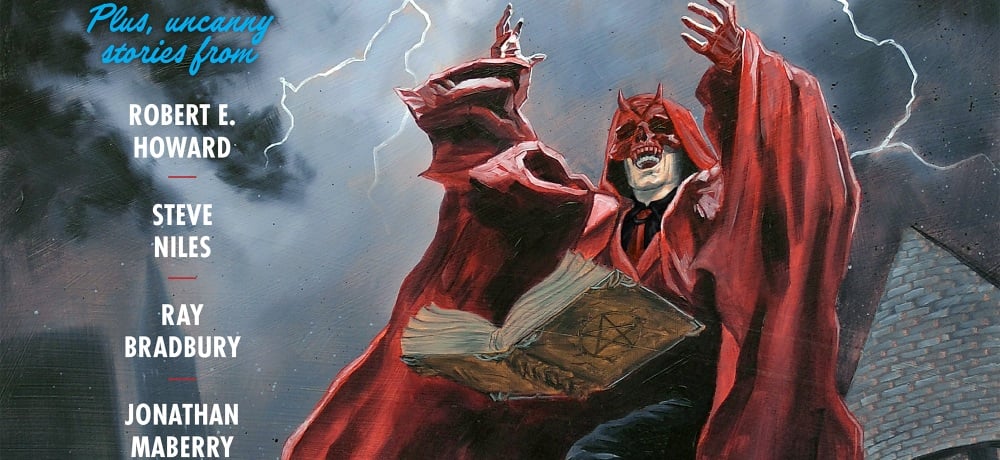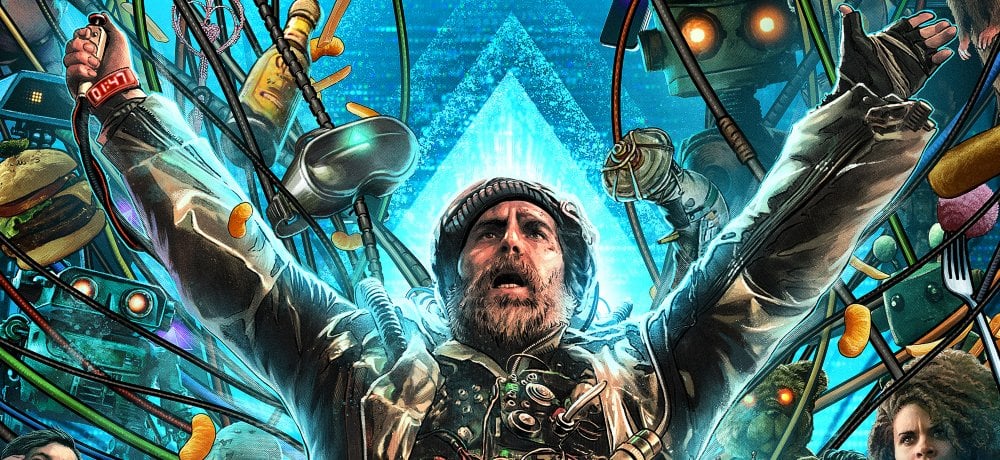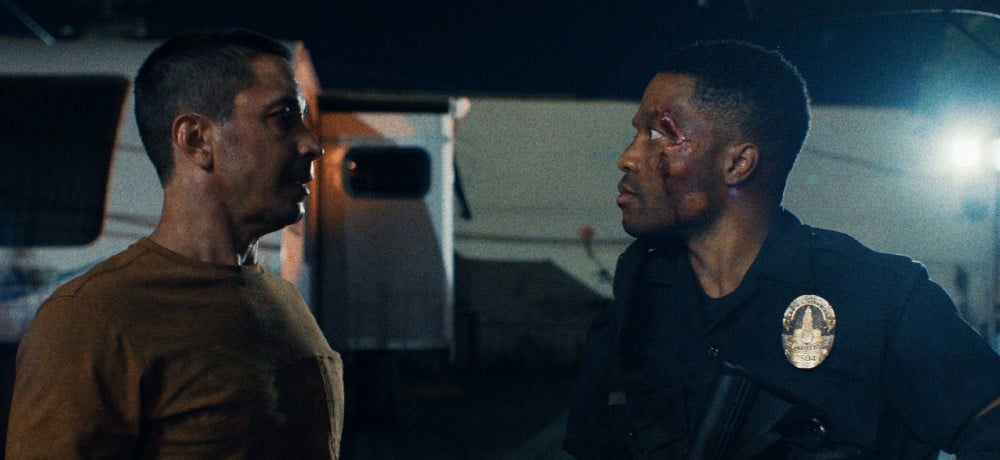






File Ryan Prows’ Night Patrol under a classification of race and justice-related films that loudly roar, and pardon my French: “fuck your subtlety.” His follow-up to 2017’s Tarantino-y collection of chaotic interconnected stories—Lowlife—brings the same exploitation grit. Prows collaborates with co-writers Tim Cairo, Jake Gibson, and Shaye Ogbonna to wage a war between Black project residents and an evil supernatural LAPD task force. It’s a midnighter about culture, ethnic cleansing, and systemic corruption with a fanged bite, using straightforward horror tropes to tell a passionate story on behalf of the people who find themselves targets based on skin color alone.
Jermaine Fowler stars as a former Crip gang member turned LAPD officer, Xavier Carr, who escaped the streets to try to protect his people. Justin Long plays his partner, Ethan Hayworth, a decorated military vet who’s just been promoted to Night Patrol. Xavier can’t help but be jealous; Night Patrol are the big dogs every cop wants to roll alongside. But Ethan has other motivations, since his father was killed on Night Patrol duty. Ethan plans to infiltrate Night Patrol to see what’s really going on with the group after sundown, which unfortunately puts him in the middle of drama with Xavier’s brother, a Crip member known as “Cripboi” (RJ Cyler). It’s all a mess, but it’s about to get messier, since Night Patrol plans to frame the Crips and Bloods into a gang war that’ll give them an invitation to clean out the Colonial Courts Public Housing Projects.
Now, let me confirm. Night Patrol is an extreme genre story that is about monsters of the creature sense, not just everyday ghouls hiding behind badges. What presents itself like a scrappier End of Watch or Training Day sibling is filled with dark secrets and far-out conspiracies that bring themselves to life in gratuitously violent ways. It’s got the same punch as Prows’ V/H/S/94 segment “Terror,” in how the undeniable creature element that’s being teased is, in fact, what brings on immeasurable horrors—except this time, there’s even more delicious villainy given the LAPD’s inclusion.
What’s so special about Night Patrol is its conversation around Blackness in America and the whitewashing of cultural specificities. It’s saying the quiet part out loud, since Night Patrol uses their passed-down abilities to eradicate entire project housing complexes for their own personal gain. The dialogue Prows’ writers put forth is so intentional with its harsh language; skinhead Neo-Nazi types wearing blue uniforms who are itching to fire shotgun shells into Black locals as they lace into despicable, bigoted rants. From the minute Phil Brooks (WWE’s CM Punk) walks on screen, covered in tattoos and bending the law to his will as a Night Patrol bastard, the film’s intentions are clear. The methods of oppression are introduced, with a sense of unfiltered anger conveyed by Prows’ cast and crew.
It is, however, a film that’s a bit shaggy in its storytelling. Night Patrol keeps repeating itself when it comes to the most important themes, like there’s a worry that audiences won’t catch specific messages the first few times. Given the uneasy state of our country, that’s fair—but unfortunately, this approach results in sequences that feel like repetition. As Colonial Courts’ defenders try to brainstorm ways to defeat Night Patrol’s ranks, they keep restating the same awful reasons why the LAPD would send possessed death squads to their doorstep. Entire scenes feel like we’re restating the same horrifying reality—the nauseating reality that Black communities are seen as subhuman. Still, it’s the frequency of these information-dumping breakouts that matters. Action scenes will be rolling along, then we break for another huddle, which pads the film with expositional fluff that doesn’t need to be there.
Still, Night Patrol is a rich ode to culture being a viable weapon against violent hatred. Nicki Micheaux plays mother to Xavier and his gang-affiliated lil’ bro, whose identity is indebted to her South African Zulu roots. Xavier is seen as a disappointment for adopting his slave name, since his mother refuses to trust the LAPD to defend against its own internal demons. Ethan likes to say he’s one of the good ones, but even if he’s only pursuing Night Patrol for his own selfish reasons, does that excuse his participation? As Colonial Courts becomes a corpse-strewn battleground where Crips and Bloods fight in harmony against a common enemy, actors like Cyler, Freddie Gibbs, and Flying Lotus empower themselves by honoring Zulu teachings like it’s their superpower. It gives Night Patrol a distinct flavor of retaliation, positioned on the frontlines with other genre productions furiously revolting against a country that grows less tolerant by the hour.
Night Patrol might be too much movie, a rougher exploitation film that gets lost in overstating its due backlash, but it’s a worthwhile midnighter at the crossroads of gratuitous carnage and meaningful rage. Prows is a relentless director who punches forward with heavy narrative implications, never taking the safe route. Night Patrol is no different, as a fantastic ensemble cast gives their all to a carnal copland conspiracy thriller. Blood flows, alarms sound, and through it all, Prows proves why genre films are often the best way to convey the hardest-to-swallow messages. If you don’t get what Night Patrol is trying to say, all hope is lost (or you’re playing for the wrong team).
Movie Score: 3/5